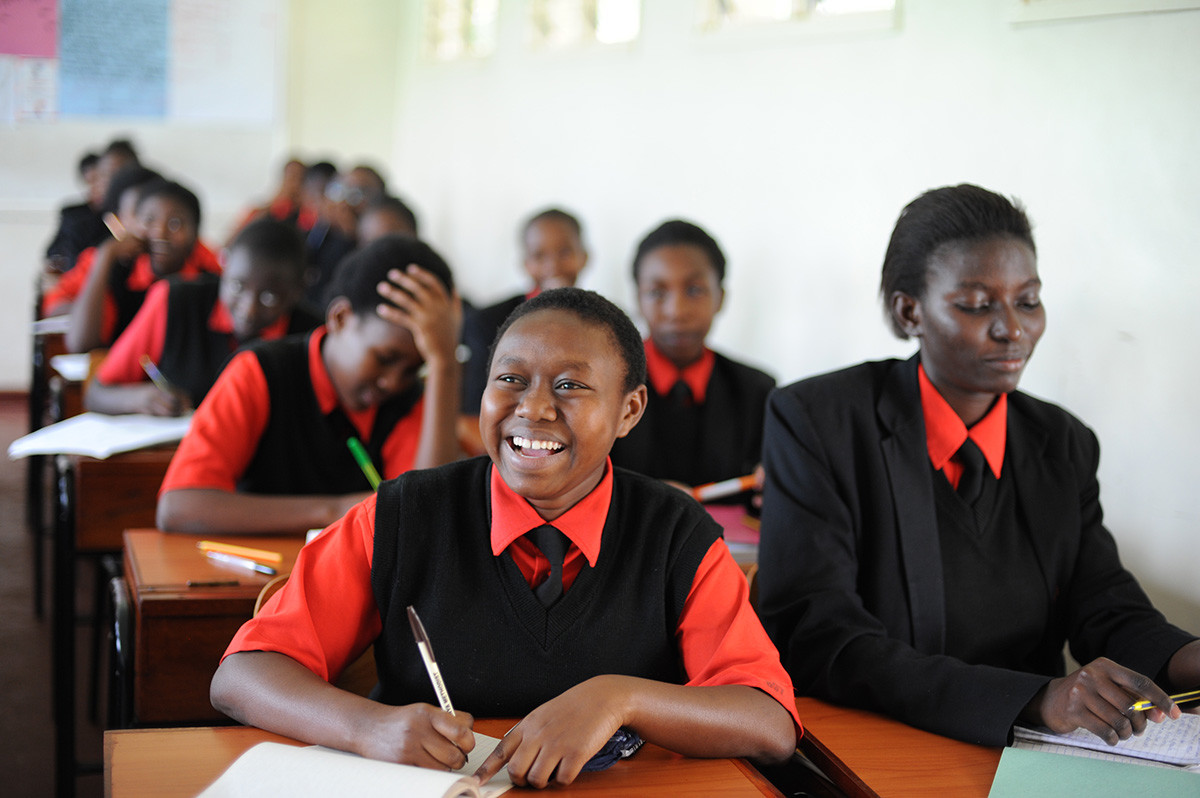
Scholarships Driving Change in Access to Education in Kenya
Secondary school scholarships in Kenya are transforming the lives of youth and their families, and driving change in access to education for thousands of Kenyan students
At Karasani Stadium in Nairobi, Kenya, 1,700 primary school graduates gathered on January 9, 2017, to receive scholarships to attend some of the best secondary schools across the country. It was the latest commissioning ceremony in the Wings to Fly Program, which aims to educate 20,000 promising young Kenyan leaders. These Scholars include young people, like Anne; a blind 14-year old girl who left a forced marriage to score high marks on her primary leaving examination. She is now enrolled in Moi Girls High School in Nairobi.
The Wings to Fly scholarship program was started by Equity Group Foundation in 2010 with the support of The MasterCard Foundation, and has leveraged additional support from DFID, USAID, and KfW Development Bank.
Students are selected from across the country based on academic merit, need, leadership potential and commitment to creating positive change in their communities. The scholarships provided are comprehensive, covering tuition, learning materials and stipends. This ensures that all barriers to secondary education are removed, and that students are able to learn without reservation.
The Wings to Fly Program is a unique public-private partnership that is delivering results for some of the most disadvantaged students across Kenya. The program also relies extensively on Equity Group’s branch network and infrastructure. Branch champions, together with local community members and teachers, select students for the program based on strong economic performance, need, and leadership potential. They also play a key role in supporting students during their years of study, providing mentoring support and leadership training, and often stepping in to resolve school and family challenges and address hardships. One in three graduates is given the opportunity to complete a paid internship in Equity Bank prior to starting their university studies. This enables students to save for university while also providing valuable work experience for students.
Since 2010, more than 14,000 Scholars have been supported under the Wings to Fly Program. Four cohorts have now completed their studies; of these students, 98 percent have graduated high school (compared to the national graduation average of 77 percent). Of our graduates, 82 percent of them have transitioned to university (compared to a national transition average of 15 percent). These are profound results that demonstrate the impact of high quality education for students from disadvantaged backgrounds.
Through the program students are developing leadership skills and finding ways to give back to their communities, like Moses from Nyandarua, a 2016 graduate of the Wings to Fly program. Moses aspires to be a lawyer and fight for justice. As a Wings to Fly Scholar, Moses also used his stipend to support other students in need and established a foundation that has so far paid the fees for 45 students in need.
More importantly, the program is complementing the Government of Kenya’s efforts to improve access and quality of secondary education as part of its Vision 2030 and is leveraging broader changes to the education system in Kenya, where more than one in four young people still does not attend secondary school. Cabinet Secretary, Dr. Fred Matiangi, who presided over the recent commissioning ceremony, hailed the program for “playing a critical role in supplementing the government’s efforts in providing education for all.” The profile and attention generated by the nationally televised annual commissioning event and broad awareness of the program is changing perceptions regarding the importance and reach of good quality secondary education in the country.
As more students graduate, attention is being paid to their transitions to jobs and further education. Last year, The MasterCard Foundation funded a pilot vocational training component for students from our first three cohorts who did not secure a placement at university. Based on the pilot’s results, the Government of Kenya and KfW have agreed to co-fund up to 6,000 young people over the next few years to access vocational training. These are significant developments that will enable transitions of young people into the workforce, coinciding with significant education reforms and policies that will upgrade technical and vocational education to respond to the needs of Kenya’s rising economic sectors. For young Kenyans, the promise of secondary school education is just the beginning.




